The monthly fundamental and technical developments of selected cryptocurrencies, including Bitcoin (BTC), Ethereum (ETH), Stellar (XLM), Algorand (ALGO) and Stacks (STX) in collaboration with Swiss digital asset specialist 21Shares AG.
Bitcoin (BTC)
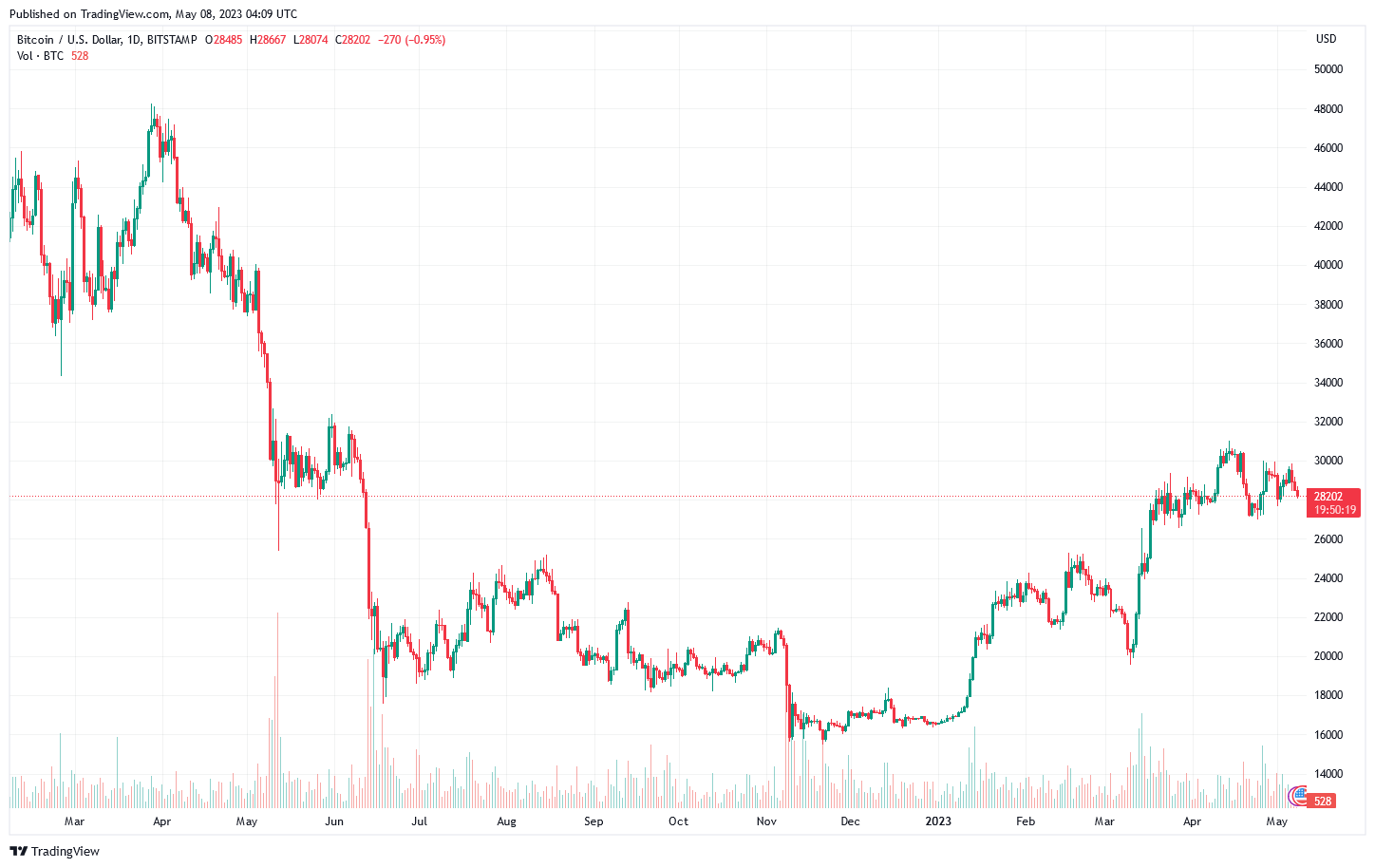
Bitcoin rose 2.78% in the past month. The banking instability we saw last month continues in the U.S. as regulators seized First Republic Bank and sold its assets to JPMorgan on May 1 in a deal to resolve the largest U.S. bank failure since the 2008 financial crisis. According to an FDIC analysis, the outsized proportion of uninsured deposits relative to historical levels has increased the vulnerability of the U.S. banking system to bank runs. Investors must remember that one of Satoshi Nakamoto's primary motivations for creating Bitcoin was to have an alternative form of money outside central banks' control. At its core, Bitcoin is a non-sovereign form of money suitable to withstand this kind of market environment.
Ethereum (ETH)
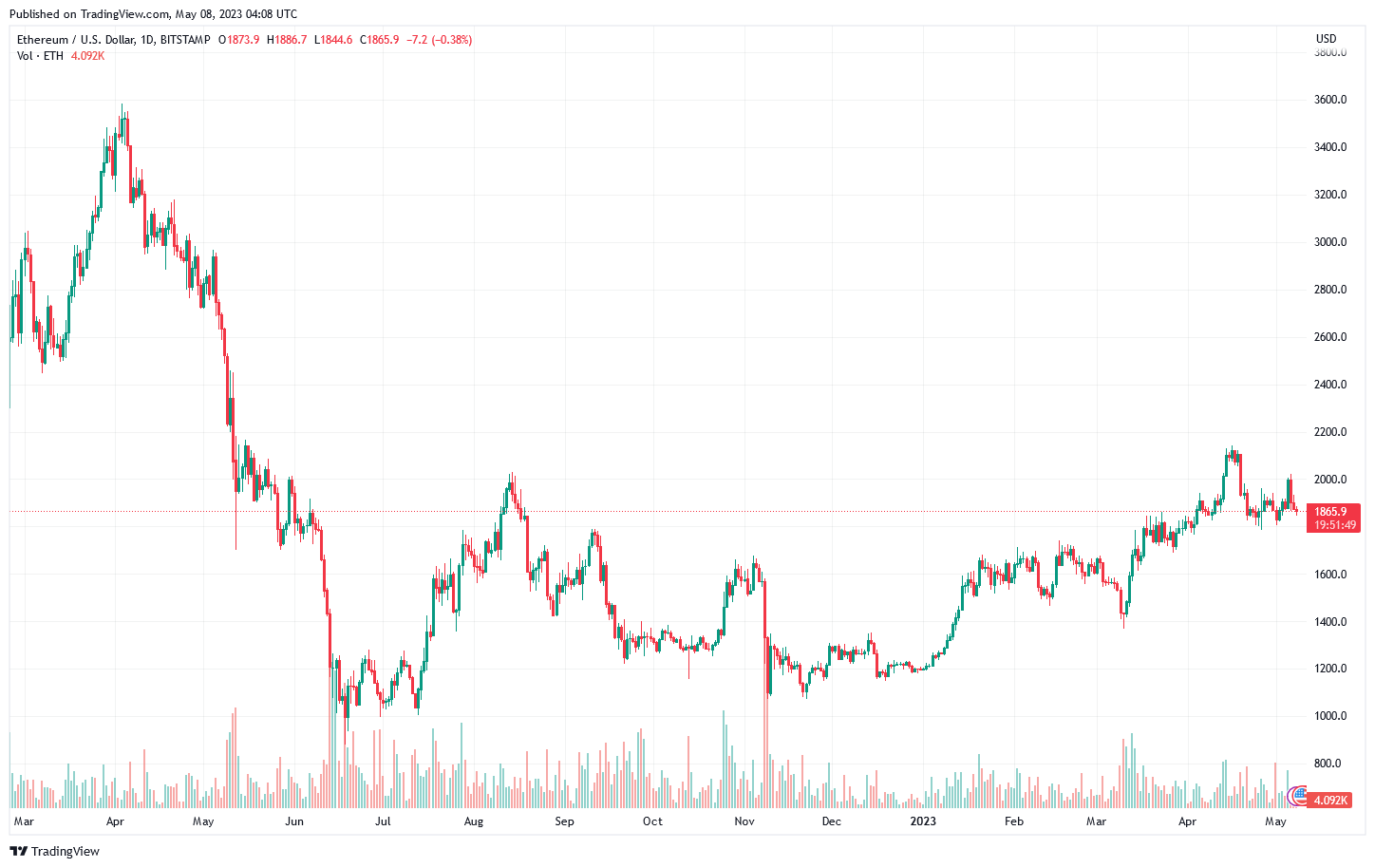
Ethereum traded up 3.01% over the past month. Since the Ethereum staking contract launched in December 2020, investors who wanted to validate transactions and secure the network had to withstand an indefinite lockup period on their Ether (ETH). On April 12, the Shanghai upgrade was activated, closing the loop on staking liquidity by allowing investors to finally withdraw their locked ETH. Enabling ETH withdrawals has reduced the liquidity risk for investors, particularly institutions. In the past 30 days, investors staked more than 1 million ETH. The inflow was driven mainly by Lido and many institutional-grade staking providers, including Stakefish, Staked.US, Kiln, and Figment.
Stellar (XLM)
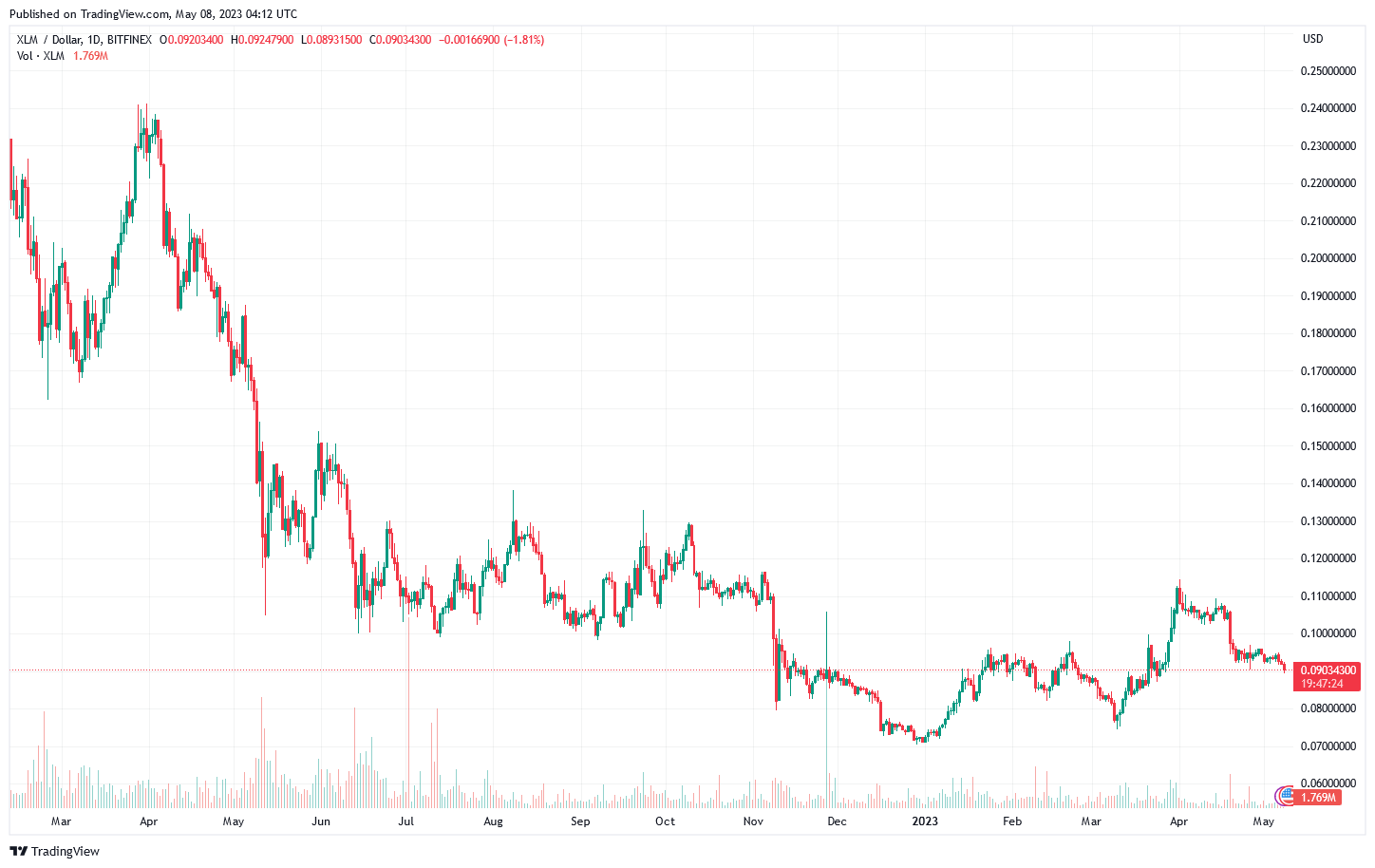
Stellar's native token XLM traded down 15.57% over the past month. On April 24, investment manager giant Franklin Templeton announced that its Franklin OnChain U.S. Government Money Fund (FOBXX) was made available on the Stellar network through the Benji Investments app. The fund has surpassed $270 million in assets under management (AUM) and already maintains the official record of share ownership via a proprietary solution leveraging the Stellar blockchain. On another note, Stellar Development Foundation CEO Denelle Dixon said that, despite the negative sentiment regarding US crypto legislation, she expects a stablecoin bill to pass this year.
Algorand (ALGO)
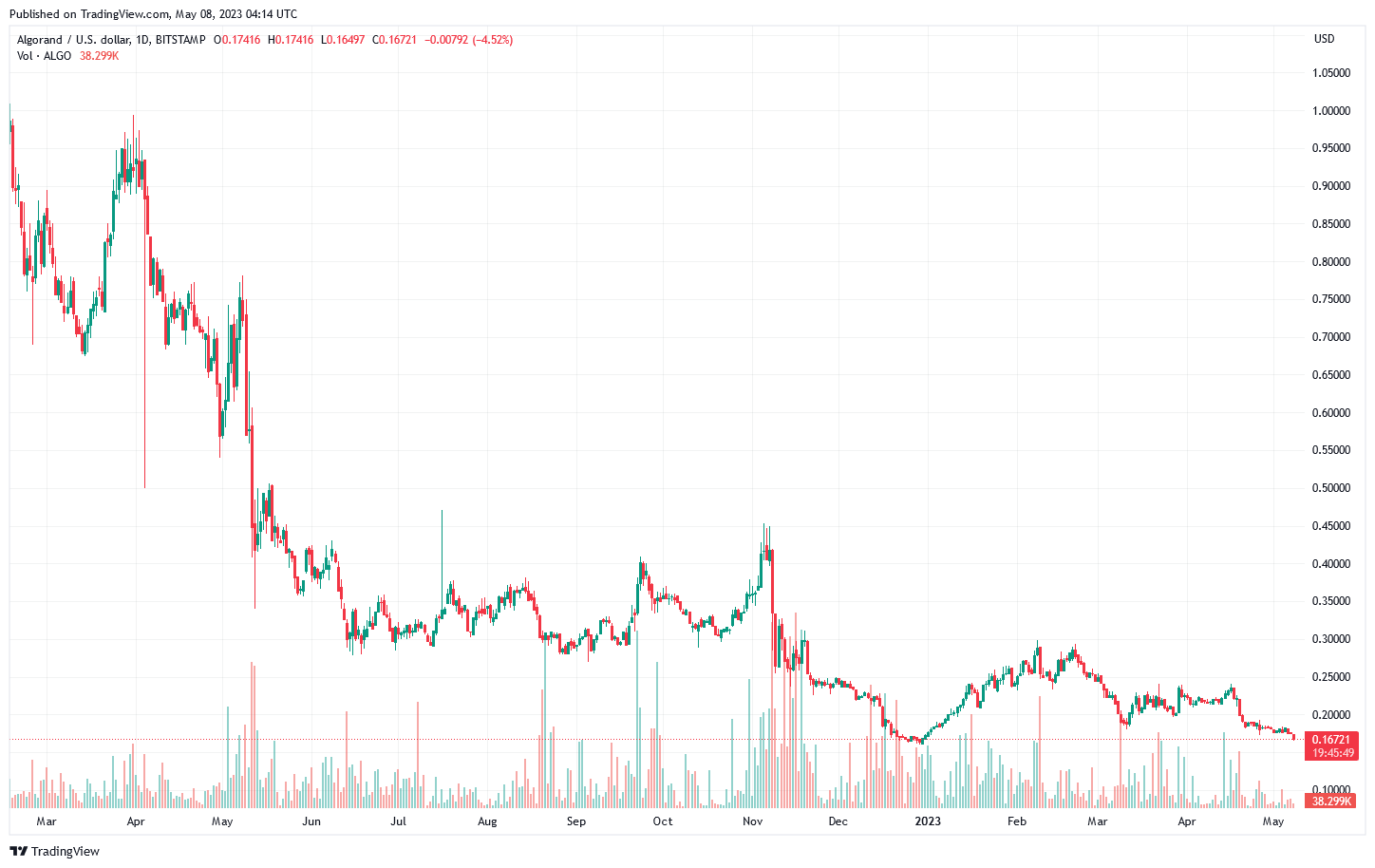
Algorand's native token ALGO traded down 19.74% over the past month, underperforming the broader market despite exciting ecosystem developments. Argentinian low-cost airline Flybondi introduced NFT tickets to its customers in collaboration with TravelX on the Algorand blockchain. Customers can buy the NFT tickets via Flybondi's website using just an email (no digital wallet required), with the added benefit of being able to transfer the NFT to any user. As of April 28, more than 100,000 NFT tickets had been bought. In other news, the SEC alleged that ALGO and five other tokens should be deemed securities in a lawsuit against crypto exchange Bittrex filed on April 17.
Stacks (STX)
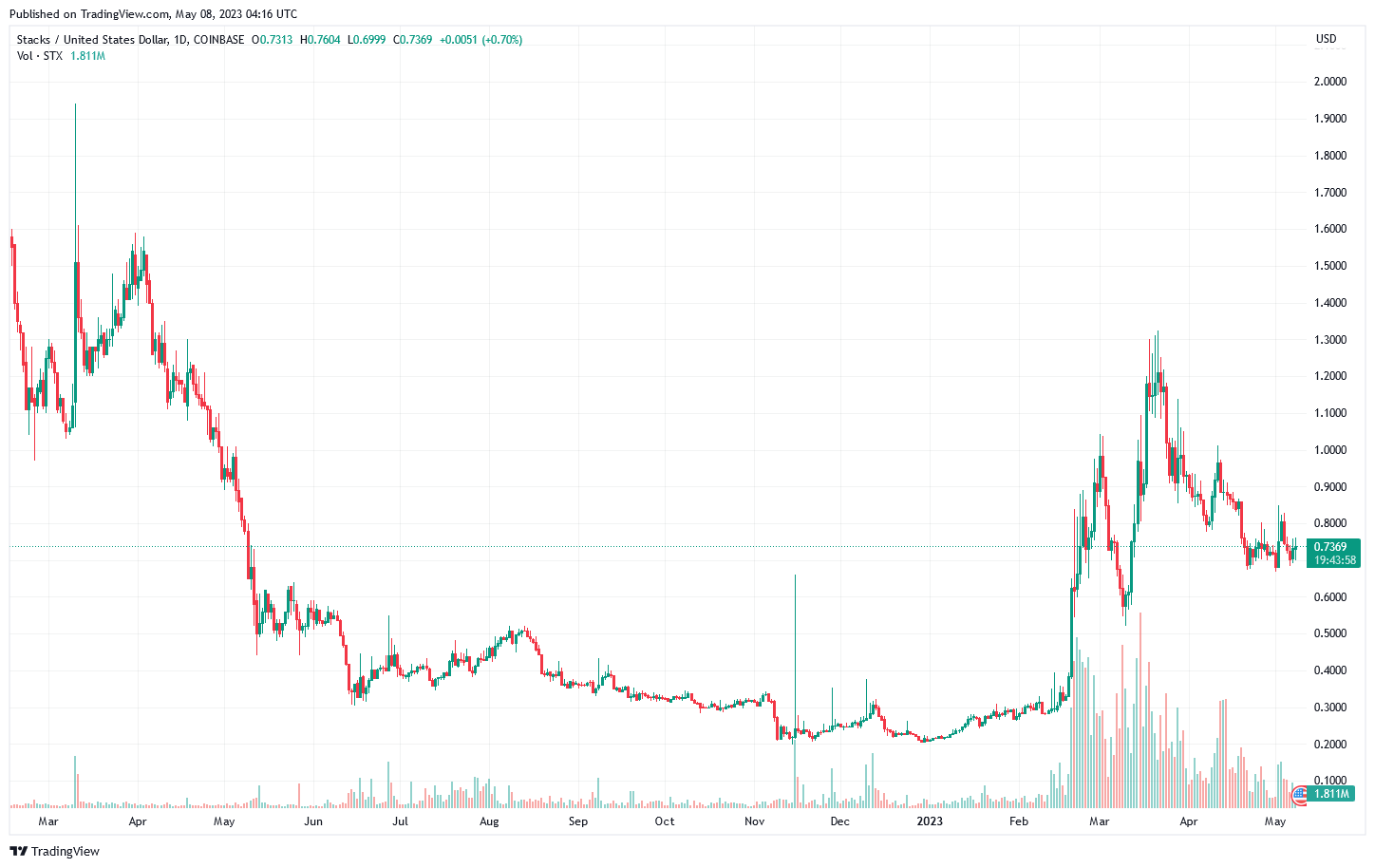
Stack's native token STX traded down 22.63% over the past month. STX's relative strength index (RSI) was in the "overbought" zone (>70) for most of February and March as the crypto asset rose by ~300% – after this correction, STX's RSI is now in the 30s, which may indicate that the asset is close to being “oversold.” Stacks is a Layer 2 blockchain that enables smart contracts compatible with Bitcoin infrastructure. Stack's network activity saw explosive growth in recent months thanks to many developments, the most notable being Ordinals, which enabled Bitcoin-native NFTs. Stacks has the potential to expand Bitcoin's use cases beyond a store-of-value asset and, perhaps more importantly, generate greater revenue streams via higher transaction fees for the miners, which will be critical for Bitcoin’s long-term network security.




